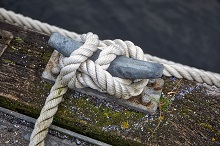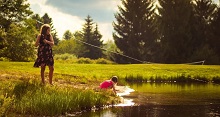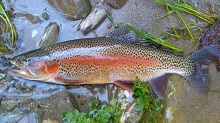Cod
CanadianAngling.com (August 9, 2011). Finally researchers are starting to notice a recovery of Cod and other ground fish after 20 years. The populations crashed in the early 1990’s due to over fishing along the east coast. Their research was recently published in the July edition of Nature.
William Leggett (professor Department of Biology) said; “this early-stage recovery represents a long ecological transition for an ecosystem that was pushed out of balance and that is gradually moving back into balance,” He is an expert in large marine ecosystems.
The study is the first one to find that a recovery has started at the multi-species level since the collapse. They are also researching the basic ecological mechanisms that are allowing this recovery. They believe that it took 20 years for the recovery to begin because of a reversal of the predator and prey roles in the ocean. When the Cod (large bodied) were the predator, this kept the smaller forage fish populations at low numbers. When the Cod and other ground fish were over fished, this removed the control on the population and the numbers of smaller forage fish sky rocked. Due to large number of smaller fish (now the predator), they decimated the cod fry shortly after they hatched. This kept the cod population from recovering. They found that the smaller fish populations actually increased to over 900 per cent due to the lack of a predator species(Cod and other ground fish). But over time the smaller fish populations grew too large and outstripped their resources and their populations started to drop. Once this happened, it allowed more of the cod and haddock fry to survive and their populations to increase finally.
This is a good sign and shows that other collapsed fisheries can recover over time but Dr. Leggett and research colleague Jonathan Fisher point out that this is a complicated ecological process and will take time. At the present time Cod populations are around 34% of the high mark levels of the 1970-80’s but the haddock actually now exceed their highest levels and is playing a more dominant role in the fisheries.
“It’s difficult to say if this switch may have any long-term implications,” said Dr. Fisher (postdoctoral fellow in the Department of Biology). “This system may return to its historical character, but there’s also the possibility that it won’t and that another species will dominate. Only time will tell.”
The research was completed including Kenneth Frank and Brian Petrie from the Bedford Institute of Oceanography with financial resources coming from the Natural Sciences and Engineering Research Council of Canada.
Wayne Sheridan for Canadian Angling.com



